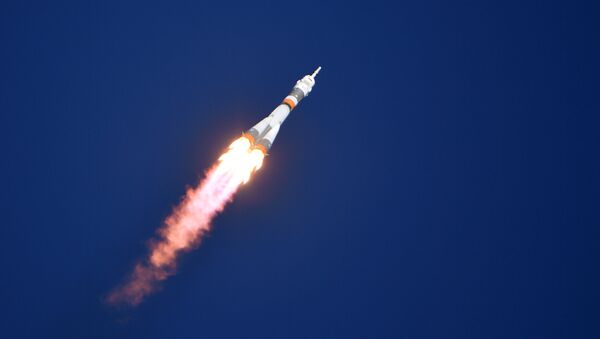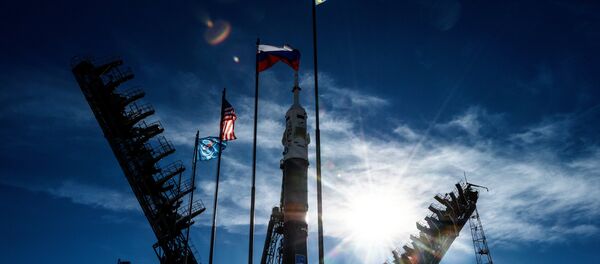Sputnik: What can you say about the US-Russia cooperation against the background of recent Soyuz launch failure and tensions between the nations in general?
Steven Freeland: Your listeners would be aware that the US and the former Soviet Union and now the Russian Federation have cooperated for many, many decades in space activities of a scientific and exploratory nature, even during the height of the deep geopolitical tensions of the time. That has continued notwithstanding the relationship that, perhaps, might have been a bit tense terrestrially. This space cooperation continues to this day, and I don’t see this mishap in any way shape or form negatively impacting upon future cooperation. Obviously, both countries will ensure that technically the safety of the astronauts and cosmonauts involved and the safety of this mission will be maintained to the utmost rigor. I certainly envisage that this cooperation will continue notwithstanding, as you say, the fact that the relationship, generally, between the two countries is probably not at its highest.
READ MORE: Roscosmos Plans to Restart Soyuz Launches From Nov. 28 to Dec. 3 — Reports
Sputnik: Jim Bridenstine called for separating politics from space cooperation; do you think that is possible going forward and in keeping with all the national security concerns that we have arising from space programs?
Steven Freeland: I think it’s a laudable call and space is so important for so many countries, in fact it’s really important to every country; and the major world countries are so heavily dependent upon their space capability and ability to access the data from their space efforts. Of course, politics, national security interests and strategic elements must play a part. It’s impossible in one sense to divorce politics and strategy from space; but on the other hand, notwithstanding politics, which is essentially politics on Earth, and notwithstanding difficult periods of relationships the cooperation in space, however, is continued, and it’s continued for the benefit of, in this case, both countries, the Russian Federation and the US, but also for a whole range of other countries as well.
The views and opinions expressed in this article are solely those of the speaker and do not necessarily reflect those of Sputnik.


